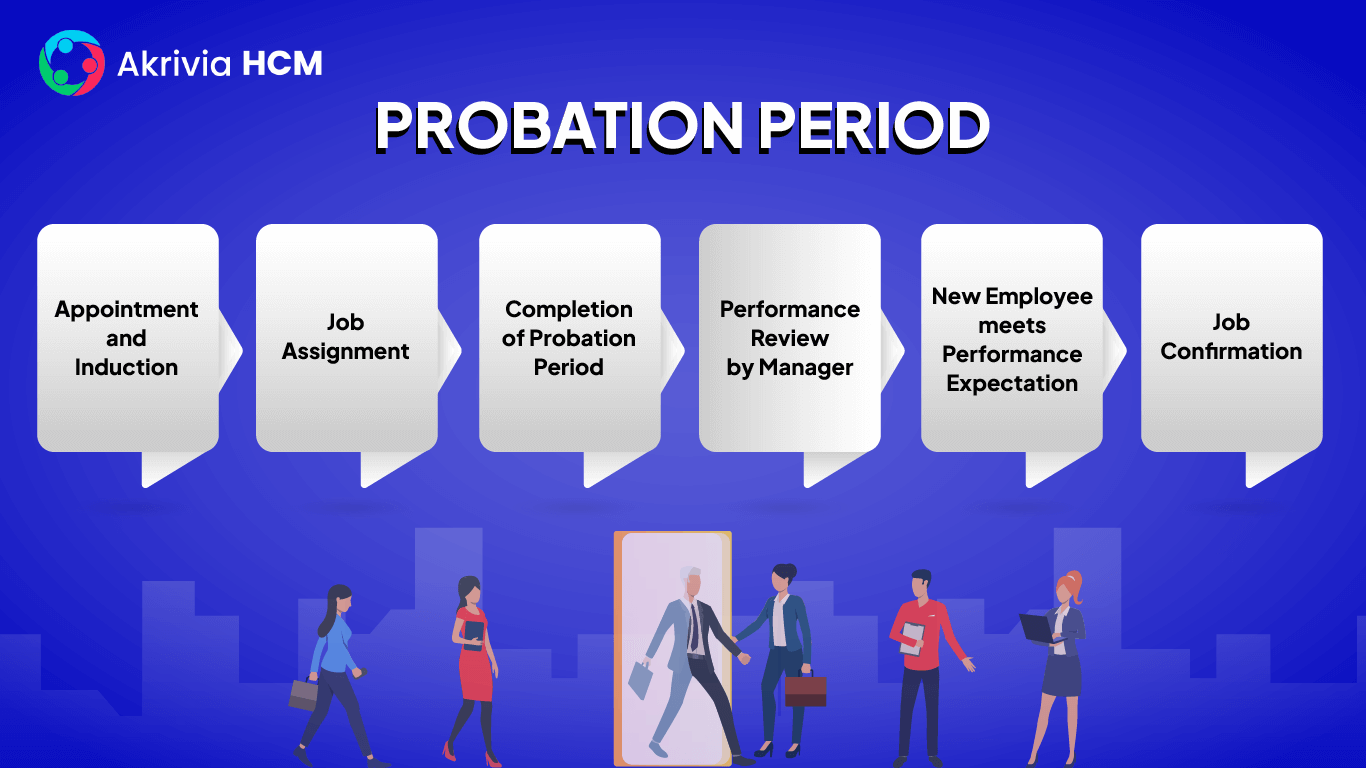Table of Contents
The probation period is an excellent opportunity to create a long-term relationship of an organization with its new hires. This is also a delicate period in which new hires are susceptible to turnover. A study reveals that, on average, a company loses 17% of its new hires. A well-developed onboarding process that creates a support system enabling them to perform better would lead to higher retention amongst the new joiners.

The probation period is a limited period; usually, three to six months, defined under an employment contract which allows both parties – employer and employee to assess their work relationship for the long term.
They may assess various parameters such as cultural fit, job quality, job performance, support, etc. This period allows both employer and employee to gauge overall fitment and lay the foundation for a long-term relationship.
The best organizations create a sound support system around a new hire to teach cultural fitment, adopt values, assign mentors for guidance, make resources available for job performance, and regular feedback meetings by managers for appreciation, improvements, etc. It’s famously said – People join companies but leave managers. The managers also need to be sensitized to new hire requirements and give impetus to grooming – nurturing their enthusiasm and honoring skills for a better career path.
The company may design the employee evaluation for formal performance review meetings once every two months. However, a weekly informal assessment by the reporting manager/assigned mentor would be advisable to keep new hires on track consistently with the work ethics of the organization.
If the performance meets the accepted criteria, then an employee is confirmed with additional perks and applicable benefits at the end of the probationary period.
If the employee fails to perform as per the organizational standards, the manager may extend the probation period at discretion to improve the performance and retain the employee.
A manager can extend a probationary period more than once at his or her discretion. If the employee fails to meet the organization’s expectations repeatedly, the manager will initiate dismissal of the employee’s services.
During the probationary period, a well-developed onboarding process would benefit organizations to retain high performers, develop cultural ethos in the next generation of employees, and save on costs.
The probation periods may vary from industry to job role, depending on the organization and industry practices. Usual industry practice has offered a probationary period range of three to six months. However, due to job complexities, high level of training requirements, etc., companies may also offer probation for up to one year as mutually agreed-upon contractual terms. However, organizations may choose to end your probation period early based on your excellent performance.
The CTC offered during a probationary period may not include some components of compensation, perks, and benefits. It may reduce your take-home salary. In the case of BPOs, night allowance is not provided to employees during the training period. Benefits such as medical insurance, stock options, etc., may be provided only after becoming a permanent employee. The employee would get entitled to perks and benefits when they complete the probation period successfully and then get confirmed for employment.
The policy of leaves vastly differs within organizations. The grant of leaves depends upon a policy influenced by its company culture and values.
The attitude of organizations should evolve from considering probation as a mere trial period and an easy legal cover for dismissal to developing new hires for long-term business roles. They should move away from the perspective of caution to confidence. The companies should consider the probationary period as an opportunity to provide the best skill training, inculcate values, build upon their strengths and nurture their talent. The end goal should always be to build a culturally aligned performing workforce with sufficient support systems and career paths. If the organizations feel confident about a new hire for a particular role, they may well consider doing away with the probation period.
An organization’s values, culture, and business requirements often influence the notice period clause. Organizations may choose to insert the following nature of the notice period clauses in the contract agreement:
In case, if an employee is asked to leave without serving the notice period, they would be entitled to a month’s pay in his final due settlement.

Let’s Recruit, Reward, and Retain
your workforce together!
